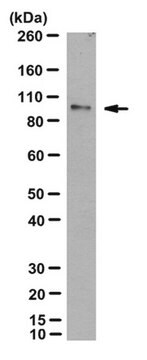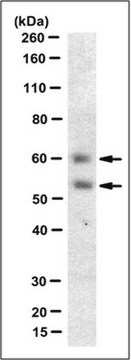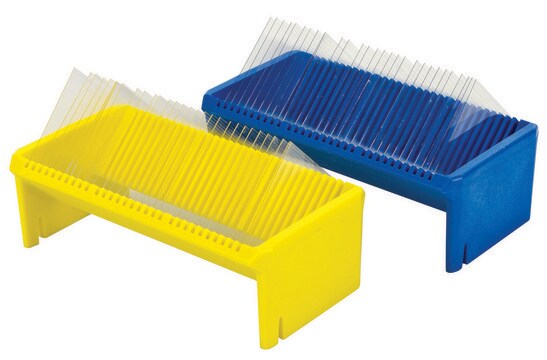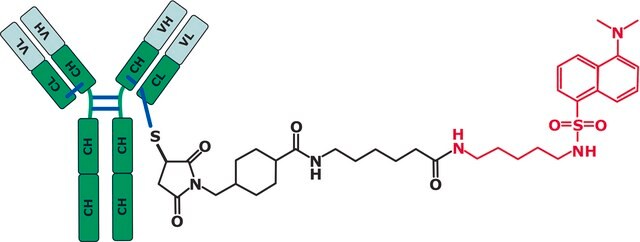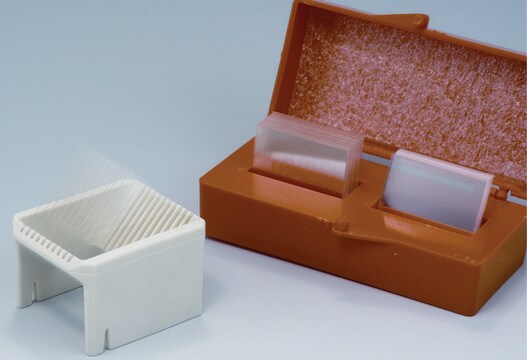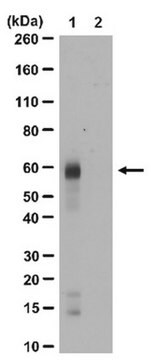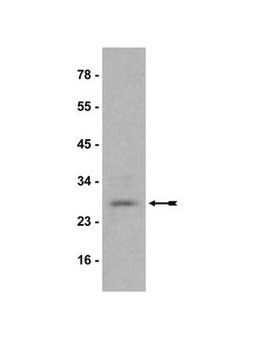MABN1598
Anti-RetGC-1/GUCY2D Antibody, clone 6D8.2
clone 6D8.2, from mouse
Synonym(e):
Retinal guanylyl cyclase 1, Guanylate cyclase 2D, retinal, RETGC-1, Rod outer segment membrane guanylate cyclase, ROS-GC
About This Item
Empfohlene Produkte
Biologische Quelle
mouse
Qualitätsniveau
Antikörperform
purified immunoglobulin
Antikörper-Produkttyp
primary antibodies
Klon
6D8.2, monoclonal
Speziesreaktivität
human
Methode(n)
western blot: suitable
Isotyp
IgG1κ
NCBI-Hinterlegungsnummer
UniProt-Hinterlegungsnummer
Versandbedingung
wet ice
Posttranslationale Modifikation Target
unmodified
Angaben zum Gen
human ... GUCY2D(3000)
Allgemeine Beschreibung
Spezifität
Immunogen
Anwendung
Neurowissenschaft
Sensorik & Peripheres Nervensystem (PNS)
Qualität
Western Blotting Analysis: 0.5 µg/mL of this antibody detected RetGC-1/GUCY2D in 10 µg of Y79 human retinoblastoma cell lysate.
Zielbeschreibung
Physikalische Form
Lagerung und Haltbarkeit
Sonstige Hinweise
Haftungsausschluss
Sie haben nicht das passende Produkt gefunden?
Probieren Sie unser Produkt-Auswahlhilfe. aus.
Lagerklassenschlüssel
12 - Non Combustible Liquids
WGK
WGK 1
Analysenzertifikate (COA)
Suchen Sie nach Analysenzertifikate (COA), indem Sie die Lot-/Chargennummer des Produkts eingeben. Lot- und Chargennummern sind auf dem Produktetikett hinter den Wörtern ‘Lot’ oder ‘Batch’ (Lot oder Charge) zu finden.
Besitzen Sie dieses Produkt bereits?
In der Dokumentenbibliothek finden Sie die Dokumentation zu den Produkten, die Sie kürzlich erworben haben.
Unser Team von Wissenschaftlern verfügt über Erfahrung in allen Forschungsbereichen einschließlich Life Science, Materialwissenschaften, chemischer Synthese, Chromatographie, Analytik und vielen mehr..
Setzen Sie sich mit dem technischen Dienst in Verbindung.